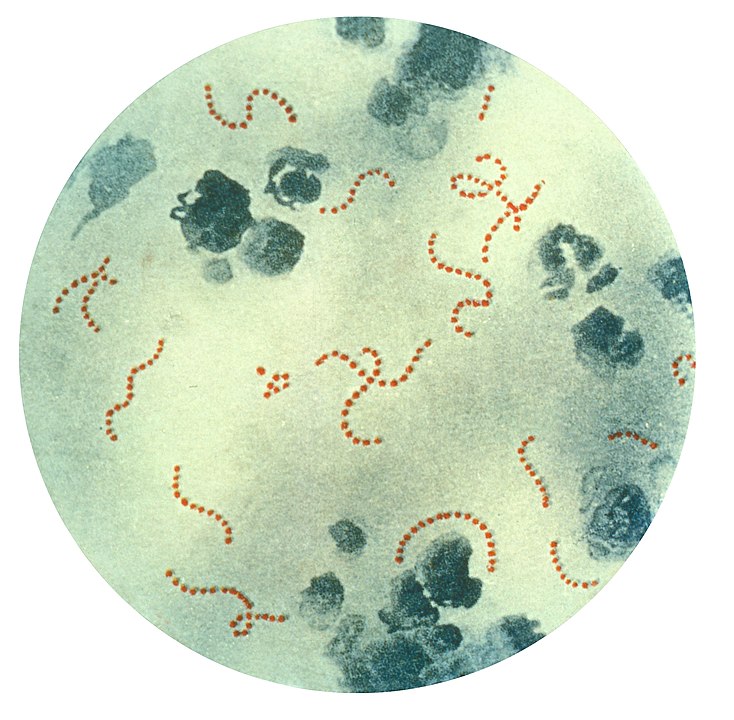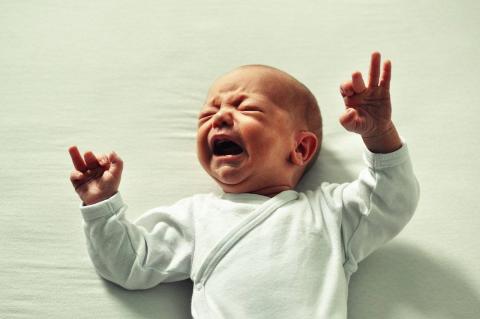Reactions to the increase in 'Streptococcus pyogenes' infections in the UK and the situation in Spain
In recent weeks, the UK Health Safety Agency has detected an unusual increase in infections with Streptococcus pyogenes bacteria. At least 13 children under the age of 15 have died from this pathogen, which is responsible for mild infections but also for more serious conditions such as invasive disease. The Spanish Society of Paediatric Infectious Diseases has reported that there have been some deaths in Spain - the Community of Madrid has reported two deaths - and is analysing whether there has been an unusual increase in cases.

Jesús Saavedra - S pyogenes EN
Jesús Saavedra
Doctor at the Paediatrics Department of the Gregorio Marañón University Hospital and coordinator of the PedGAS-net Project -a national network for the study of invasive S. pyogenes infections-
The reason for this increase in the UK is unclear. The most widely accepted theory is a decrease in general immunity due to a decrease in the circulation of the bacteria as a result of distancing measures during the pandemic. But it could have been an accumulation of circumstances that will have to be analysed more slowly, such as the coincidence with two respiratory viruses that could favour a more severe infection, such as RSV and influenza, or the change of strains or serotypes, which could be more virulent. However, it is probably too early to know whether there is a real increase in incidence, as incidence is fluctuating and reporting may be delayed.
In Spain, invasive Streptococcus pyogenes disease (S. pyogenes) is unfortunately not a notifiable disease (NOM), so we do not know if there is an increase in incidence. We studied it in Madrid a few years ago and saw an increasing trend, which then decreased a lot (like other infections) during the covid-19 pandemic, and it was an enigma how it was going to evolve. The feeling now is that there is a relatively large increase, both in incidence and severity, but it is something we need to study better. To this end, a few years ago a national network was created for its study (PedGAS-net), which I coordinate, and through which we are collecting cases. Given this alert, we are going to try to speed up the collection and we hope to have more data in a few weeks. It will also be important to identify the strains and serotypes currently circulating, for which it will be important to work with the National Microbiology Centre.
For parents, the first thing to do is not to be alarmed, as these serious S. pyogenes infections are very rare, especially the most serious ones. I like to appeal to common sense and assess each child, keeping an eye on the warning signs that paediatricians always mention when faced with an episode of fever, such as significant drowsiness, persistent respiratory distress, vomiting that does not go away or fever that lasts more than 3-4 days, especially if it is high or difficult to reduce. And something we always mention are rashes that do not disappear with acupressure. Sometimes you also have to be careful with rashes that are extensive and very red, like sunburn. Something important (although not 100%, like everything else in medicine) is that strep throat usually occurs without a cold, mucus or cough. It is important to inform parents that in the event of a suspected S. pyogenes infection, health centres, where the staff are excellent professionals, usually have a throat test to find out whether the infection is due to this bacterium or not, if they consider that it should be done. Finally, parents should be urged to keep their children's vaccination schedule up to date according to the recommendations of the Spanish Association of Paediatrics, including chickenpox and flu (the latter between 6 months and 5 years of age, as well as for children at risk).
It is also important to keep children out of school while they have a fever and at least 24 hours after starting antibiotics in the case of bacterial pharyngitis.
"My only conflict of interest is coordinating the PedGAS-net network, which has not received any funding so far".
Federico Martinón - S pyogenes EN
Federico Martinón-Torres
Head of the Paediatrics Department of the Hospital Clínico Universitario de Santiago. Coordinator of the WHO Collaborating Centre for Vaccine Safety in Santiago de Compostela and member of the WHO-Europe Vaccine Advisory Committee.
At the moment we do not know why the increase in the UK is due to this. A priori, the simplest explanation would be an increase in bacterial infections proportional to the increase that is now occurring in viral respiratory infections in children, mainly due to the lack of exposure in previous years due to the non-circulation of seasonal viruses such as influenza or RSV, both because of the measures taken against covid-19, which may have had a non-specific impact on the epidemiology of these infections, and because of viral competition itself.
In any case, it is early days. There are no published data yet on whether this is a specific strain with special characteristics.
In general, and not surprisingly, there is a perceived increase in severe bacterial infections, related to the increase in respiratory infections in general and the usual collaboration between viruses and bacteria. Pyogenes is not a new or unusual pathogen, we paediatricians know how to recognise and treat it and, in fact, it is the most frequent cause of acute pharyngotonsillitis in children; but it is true that in some cases it can lead to serious infectious complications and even to non-suppurative complications involving the heart, kidney, rheumatic fever....
What is now being reported is an increase in pyogenes infections which may be normal - they often occur in outbreaks with specific forms, such as scarlet fever - but more severe forms have also been seen and it is impossible to know if they are normal in proportion to viral infections without knowing the differences with previous seasons and years.
In the case of the United Kingdom, the increase in the number of cases compared to the median of previous years is striking. In Spain, for the moment we do not have official or specific data and, although cases of deaths have been reported, they could be within normal numbers. I insist that this is not a new pathology that we do not know about.
Is it possible that something similar is happening in Spain? It is possible, but I don't know. What is an objective and clear fact is that the numbers of respiratory infections in children have increased significantly and that we are seeing significant numbers of primary care and hospitalisation for viral respiratory infections in general and RSV in particular for the reasons given: less previous circulation and more susceptible population not previously exposed. When this occurs, it is normal to expect an increase in complications related to this type of infection. One of them is bacterial superinfection and one of the most common bacteria that can be found is pyogenes.
I think it is important not to alarm the population. These are alerts that have to affect the authorities and health professionals to be more vigilant, but for the moment it does not condition any specific attitude in parents. If cases of pyogenes infection occur, paediatricians know exactly what to do. Now the authorities have to give us objective data to know if the cases being reported in our country are really more or less than those we usually have.
I insist: the population does not have to do anything specifically. The best thing they can do is to get vaccinated with all the recommended vaccines, specifically the flu vaccine, because these are pathogens that take advantage of other infections to harm us, and so, to the extent that we avoid these viral infections for which vaccines exist, we will be reducing the likelihood of another complication occurring.
I want to convey peace of mind: paediatricians are perfectly capable of recognising and treating it, and at present, with the information we have, it is not necessary to take any specific measures. We have spoken out from the Spanish Society of Paediatric Infectious Diseases, but with the idea of alerting professionals, not alarming the population.



